Scary! Over half of Hungarian medical students would like to live abroad
According to the latest survey of the Hungarian Medical Chamber, 50.5% of Hungarian medical students would want to work abroad due to the uncertainties of livelihood in their fields in Hungary. The Medical Chamber has surveyed over 3,700 medical students from four major universities about how they are planning their future. The survey found, among other things, that although 60% of the students would like to start a family after graduating from their respective universities, the current salary of healthcare workers is considered too low for this in Hungary.
Students who completed the survey also shared their opinions on ‘under-the-table payment’ and issues concerning wages in the medical field. About 75% said that ‘informal payment’ is negatively affecting the doctor-patient relationship. Interestingly, 92.6% of them would stay in Hungary if the government would approve the Medical Chamber’s proposal for medical wages, as 24 wrote.
Overburdened students with negligible experience
The Hungarian Medical Chamber also asked some questions about education at a university level. The respondents said that, although it is useful, theory and theoretical knowledge they learn is disproportionately high compared to the actual practical knowledge and experience they can obtain. 88.55% of respondents feel overburdened and stressed. Two-thirds of students said that because the group size of practical classes is too large, no proper doctor-patient relationship and trust can form. 57% also commented that they think there are not enough practical classes and so students feel unprepared for the world after graduation.
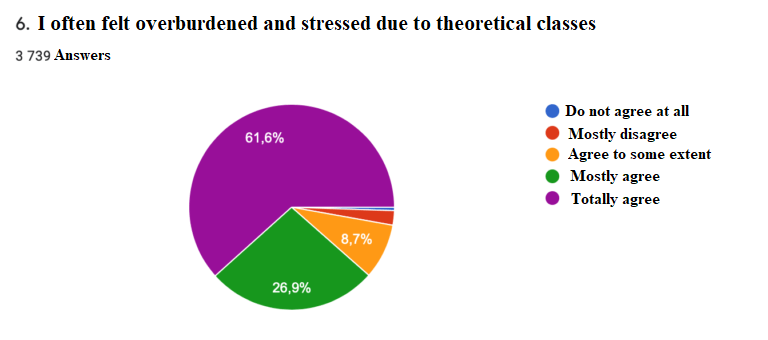
Also, 62.5% of respondents said that the relationships they form with other healthcare workers during their university years combined with their own experience are the factors that make them want to go abroad.
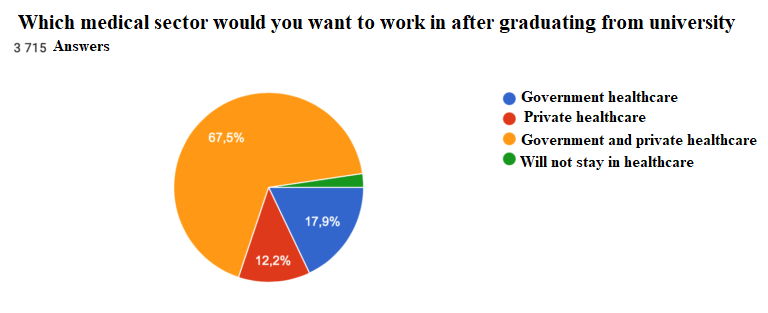
These medical students also shared in which sector they would like to settle after their studies. Only 17.9% would work in exclusively publicly funded healthcare institutions, while 12.2% see their future in the private healthcare sector, and two-thirds would like to have a job in both.
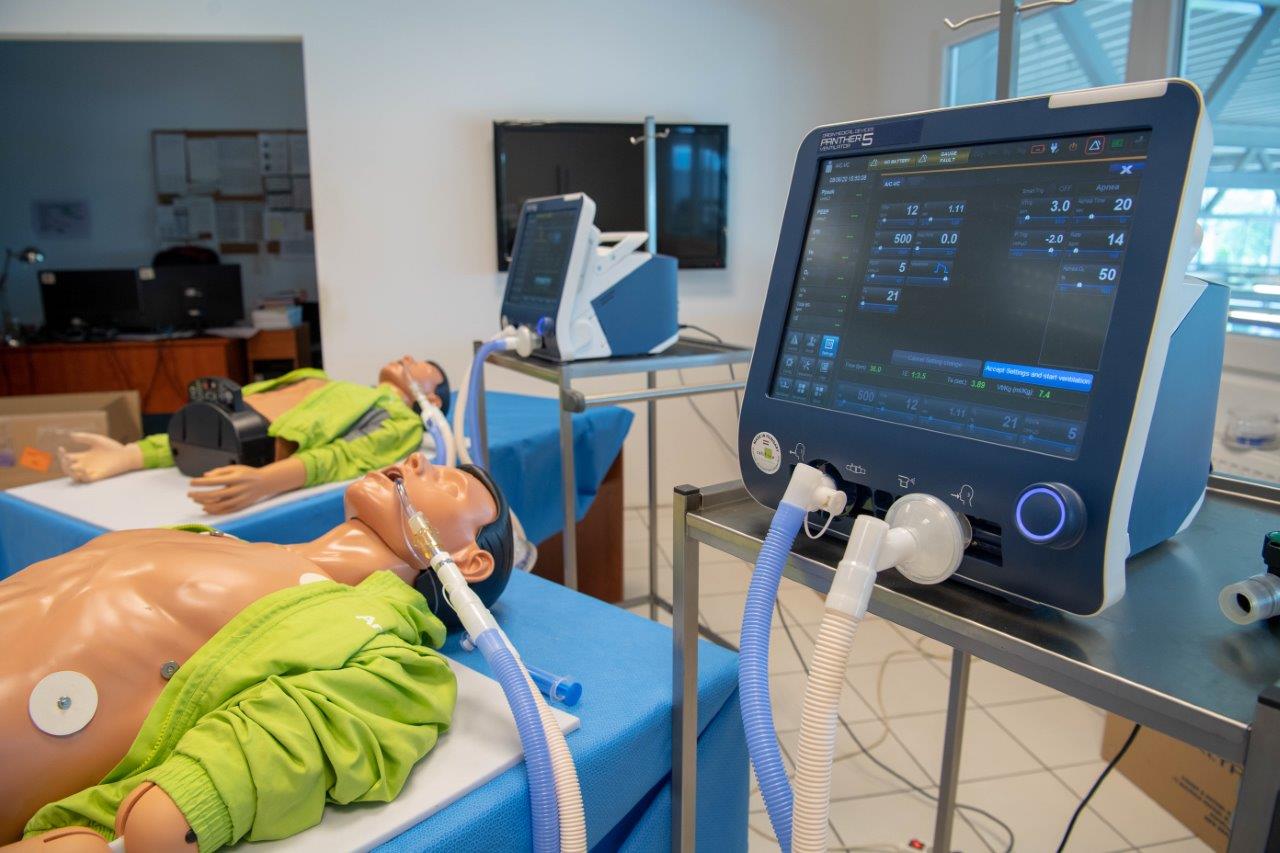
Read alsoHungary will be a greater power in breathing machines than the USA
What would they stay in Hungary for?
One in every five medical students is planning on moving and working abroad after graduating from their respective universities, while 29.7% of respondents are contemplating moving abroad for longer-term work. This means that almost every second prospective doctor would leave Hungary. The Medical Chamber also examined the reasons for this mass migration of medical workers. More than half of the students would go abroad in hopes of higher salary and living standards, and 57.9% of them are motivated in their studies because of the working conditions and learning opportunities outside of Hungary.
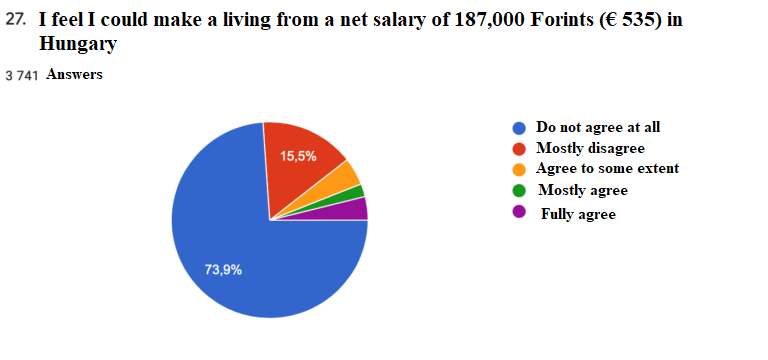
89.4% of students think they would not be able to make a living from the net starting medical base salary of 187,000 forints (€ 535). 28.9% are willing to take a second or third job to make enough money, but 52.1% would like to make a living with one job.
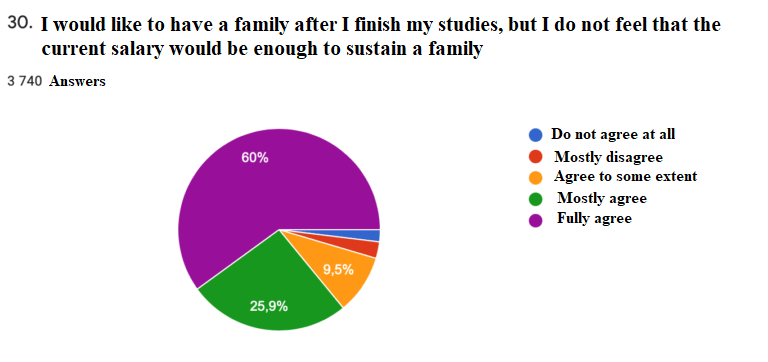
The majority of respondents think that supplementing salaries with scholarships instead of a fair base salary is a bad idea. The current low salaries also affect the plans of students; 60% would like to start a family one day, but they find it almost impossible to do so with the current wages. However, 92.6% of respondents would be satisfied with the Hungarian Medical Chamber’s proposal for medical wages, and if it would be realised, they would stay in Hungary.
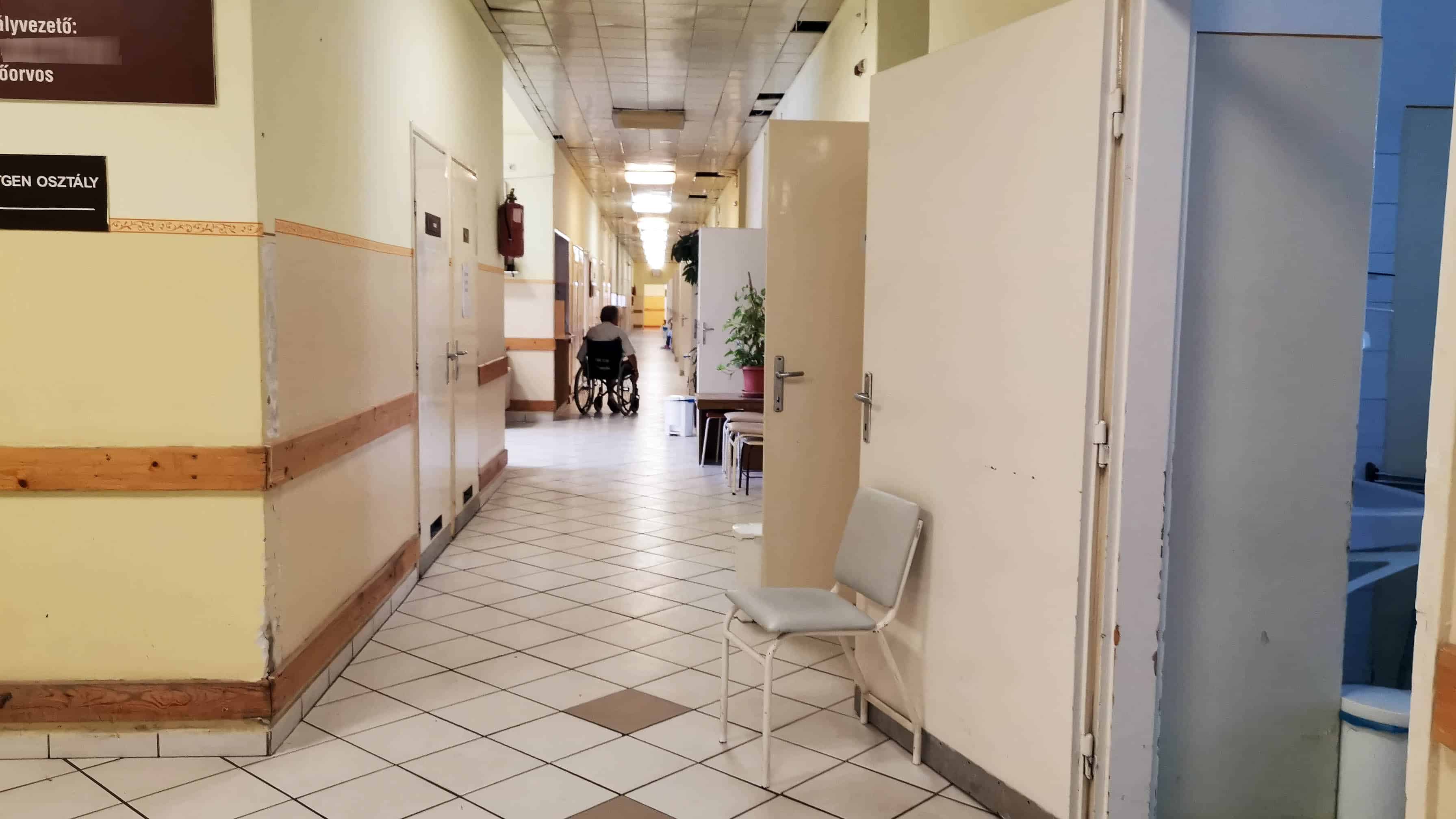
Read alsoPoor conditions in the Hungarian healthcare system: doctors and patients go to private hospitals
Doctors would rather have free time than stash money
Among the Hungarian medical students participating in the survey, nearly half of them think that ‘under-the-table payment’ is unacceptable, and only 6.2% agree fully while 8.9% agree partially with the statement that such payment is a reliable source of money to supplement their salaries and would, therefore, accept it.
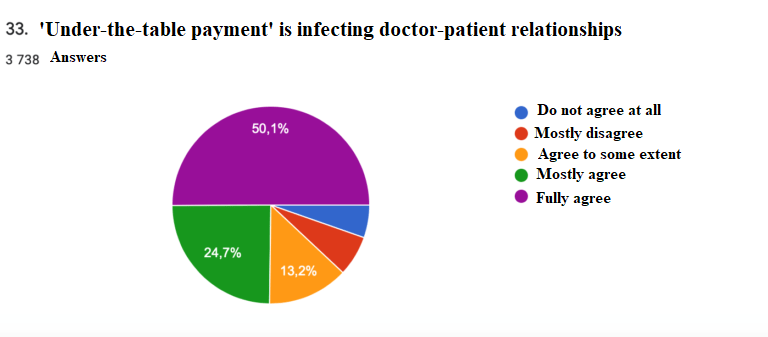
Some of the respondents added that although they think this way of earning money is unethical, the livelihood of their own family is more important to them and thus would take the money if they needed it.
Three-quarters of future doctors think this type of money is infecting the relationship between patients and doctors, and 67.3% view it as a form of corruption. 72.7% pointed out that this so-called ‘under-the-table payment’ negatively impacts residents and specialists.
In addition to questions about salaries, the Hungarian Medical Chamber also asked questions about the needs of the work-life balance of prospective healthcare workers. Almost every respondent (97.5%) said that they would like enough free time to spend with friends and family and to have some leisure time after work.
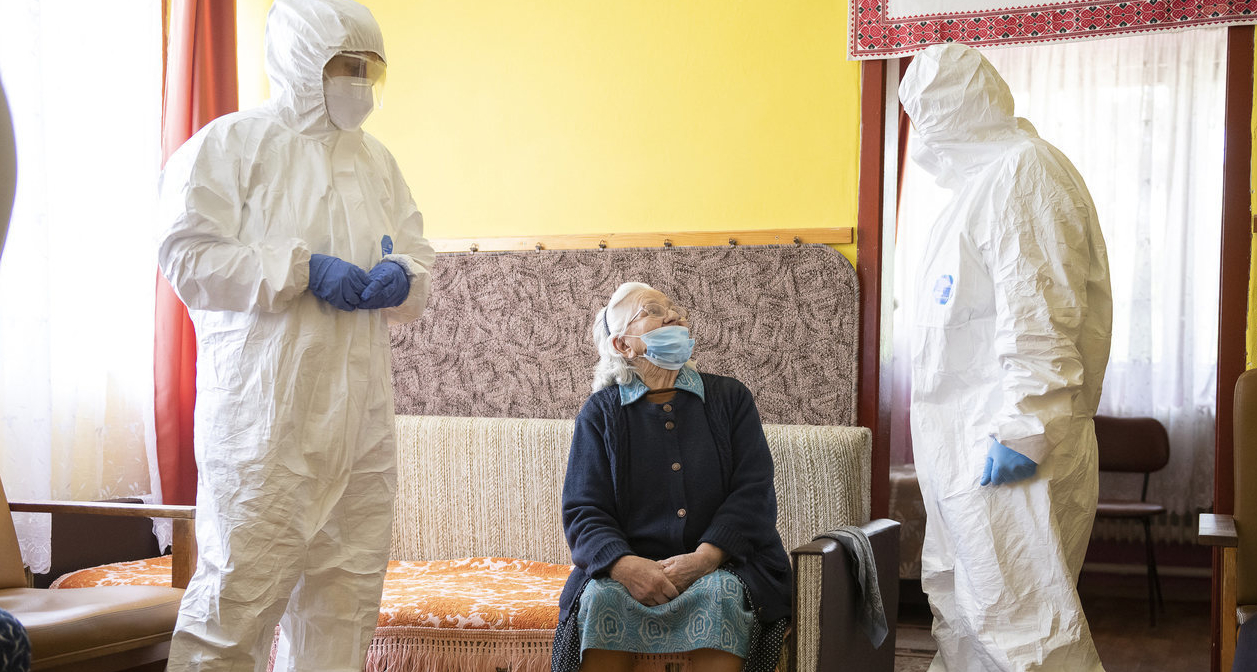
Read alsoEnormous outcry among social workers: starvation wages and no bonus for coronavirus
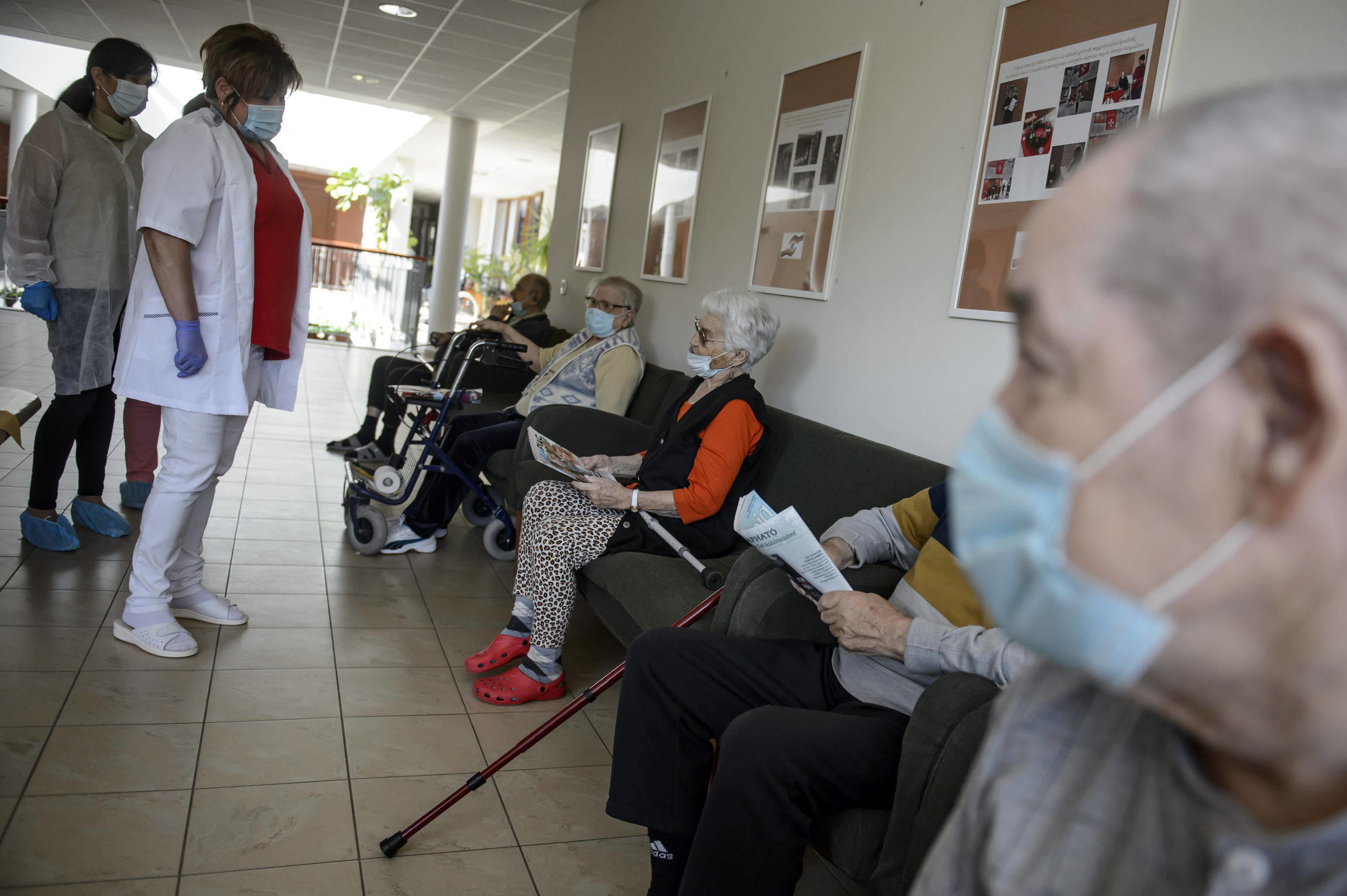
Read alsoShocking: Do only Romania and Albania have worse healthcare than Hungary in the EU?
Source: 24.hu
please make a donation here
Hot news
What happened today in Hungary – 26 July, 2024
Drama: number of births in a 20-year low in Hungary
Yay or nay? – 6 odd Hungarian delicacies that make our skin crawl
Budapest tourism “exploded” this past weekend
Container transport in Budapest may stop: How will this affect Hungarian economy?
Minister: Hungary will protect its territory by every means possible





5 Comments
The real headline should read: “Scary! Half of all Hungarian medical students would like to live in Hungary”… I was more surprised by the fact that the sun rose in the east this morning, than the fact that most doctors want to move abroad…
There should not be 1 Dr leaving Hungary for abroad. How is this problem solved? Start with Paying them a living wage. What should a Dr earn per month? At a minimum 500000 HUF as a Resident and after they complete ALL their training at least 1 Million HUF with increases annually. All medical professionals here in Hungary are vastly underpaid. Drs, Dentist and nurses are treated like pond scum here. It is disgusting what they work for.. Hungary must do better if it wants to keep the Drs they train.
Concur in large with comments written by anonymous, in his style of candour.
There are serious underlining factors, that do need serious urgent examination and decisions made, to stop this “brain drain”.
The medical profession is not the sole profession that this attitude, when qualified, to move away from Hungary, applies to.
It needs serious change, and if not changed, by a cultural of Governmental change, a make over or restyle, the serious ramifications, not just in the medical profession but other major professions – broadsheet, will be damaging, to the citizens, presently and into the future of Hungary.
Stay Well – ALL.
If Hungarian medical professionals – be those doctors / dentists / nurses – are TRAINED in Hungary, then they should be LEGALLY BOUND to work in Hungary for a MINIMUM PERIOD of 10 YEARS in that medical field after completion of the relevant training.
Failure to comply would be enforced by having to REPAY IN FULL all costs associated with such training – BEFORE BEING ALLOWED TO LEAVE HUNGARY – and non-payment must result in CANCELLATION of the relevant medical / dental / nursing qualifications.
Train Here – Work Here comments do hold a lot of correctness, as do the other (3) three comments posted.
To reach graduation, and receive your degree paper in your academic gown and hood, has not been all covered at your expense.
Cost of education on Governments is a large slice of there budgets.
They have a democratic right, to place conditions, after graduation, as exampled by the previous commentator, on graduates, after the completion of there studies.
Bit of giving back to your country or fellow citizens, who through there hard earned money and taxes paid, have muchly financed your education.